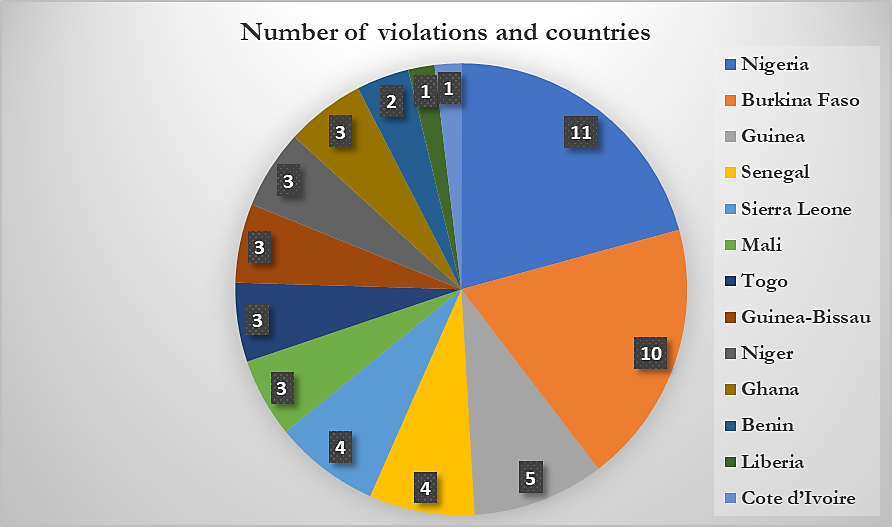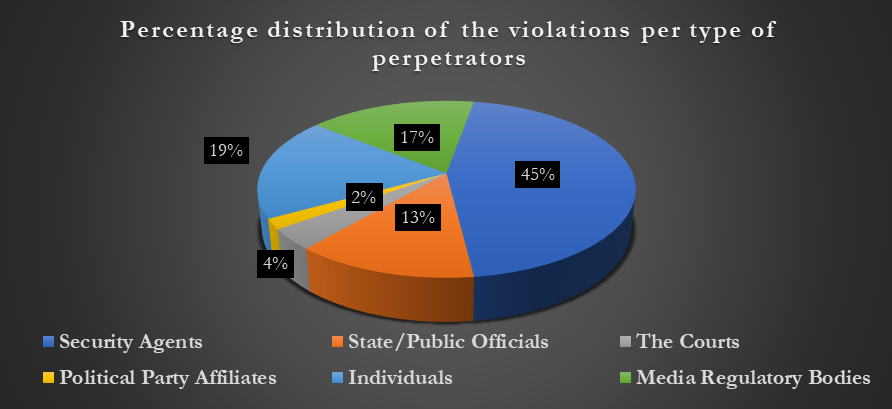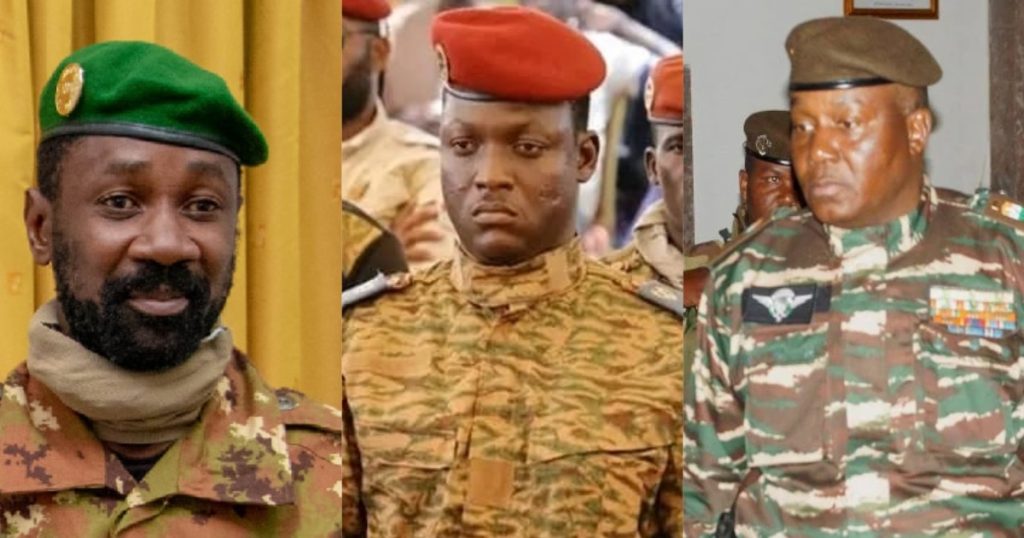The second quarter of 2024 (April-June) recorded numerous violations of freedom of expression (FOE) across West Africa, indicating a sustained assault on the civic space. Fifty-three incidents of FOE violations were recorded, with Nigeria experiencing the highest number of violations (11).
In the second quarter, Burkina Faso recorded the second highest number of violations (10), but the Sahel country distinguished itself by the severity of the violations.
Burkina Faso’s media regulator, Conseil supérieur de la communication (CSC), issued a series of suspensions targeting both local and international media outlets, including BBC Afrique, TV5 Monde, and Voice of America (VOA). These suspended outlets were often accused of spreading disinformation and disseminating offensive content against the Burkinabe army.
This trend in Burkina Faso echoes a broader regional pattern of increasing repression using the regulatory bodies. For instance, in Guinea, the Haute Autorité de la Communication (HAC) shut down five prominent private media outlets, citing non-compliance with content specifications.
In addition to the suspension of media outlets, at least three journalists disappeared within a space of nine days (from June 19-28, 2024).

In Niger, the authorities reintroduced prison terms of up to two years for defamation and the dissemination of data likely to disturb public order under the country’s cybercrime law, further stifling free expression.
Côte d’Ivoire’s Parliament approved an amendment to Article 185 (2) of the Criminal Code, Law n°2019-574 of June 26, 2019, which prohibits criticism of court rulings in a range of cases including money laundering. It also criminalises public solidarity and fundraising in support of persons convicted of particular financial crimes.
After banning the activities of political parties, the Malian government went a step further to prohibit media coverage of such activities. The junta claimed that it introduced these measures to maintain public order ahead of peace dialogues.
In terms of the distribution, 29 of the 53 violations were targeted at journalists and media workers, 13 were targeted at media organisations, three were targeted at activists, and eight were directed at citizens. Security agents and Individuals accounted for 24 and 10 violations respectively. Media regulatory bodies were behind nine violations (17%), while State/public officials accounted for seven violations. The courts and political party affiliates committed two violations and one violation respectively.

Access the full report here.


